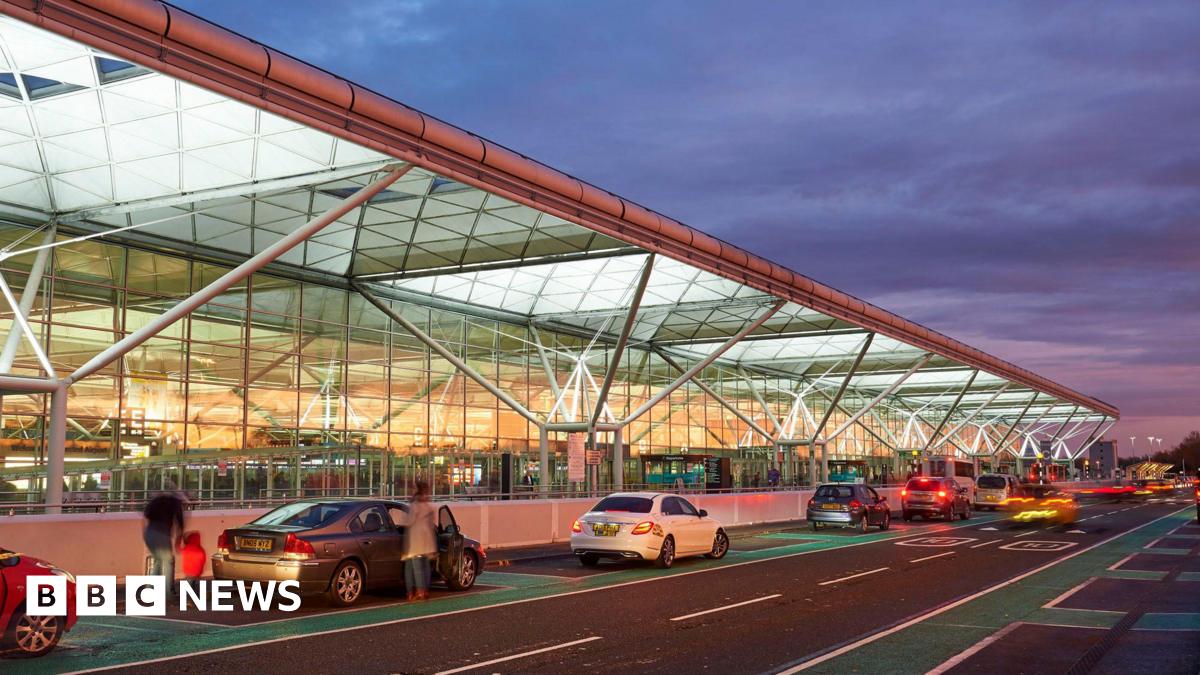Travel
Israel-Iran conflict: Is it safe to fly and will Middle East flights be re-routed?

The world is watching with concern the increasing tension in the Middle East and the potential next steps. But already the effects of Iran’s attack on Israel on Saturday night, and wider worries about the unstable situation, has had a significant impact on aviation.
Airline passengers flying to, from or via the Middle East are facing disruption. Flights to and from the UK have been cancelled or diverted, and detours around the region are jeopardising flight connections – particularly at Gulf airports.
What are the rights of disrupted passengers – and for travellers who have safety concerns? These are the key questions and answers.
What was the impact on aviation of the Iranian attack on Israel?
Ahead of the attack most countries in the region closed their airspace to passenger aircraft, leading to many diversions and planes returning to their starting points.
With Israel under attack, all airports in the country were closed – as was airspace in other countries. For example, the Saturday evening British Airways flight from London Heathrow to the Jordanian capital, Amman, travelled as far as Basel in Switzerland before turning around and returning to its starting point.
Virgin Atlantic’s Saturday evening flight from Heathrow to Mumbai flew to central Turkey before turning around and heading for Istanbul to refuel before continuing to India by a much more northerly route than normal.
Passengers on the Israeli airline El Al from Luton to Tel Aviv were diverted to the Lebanese capital, Beirut. Lebanon is one of several countries in the region that the Foreign Office warns against visiting, but evidently the airlines decided it was the safer option. Apart from one Aeroflot flight from Moscow to Dubai, which flew straight over Iran, almost all airlines avoided the entire region, resulting in much longer flights.
What are the consequences of longer flights?
A good example is MH2, the Malaysia Airlines flight from Kuala Lumpur to London Heathrow overnight on Saturday, due to arrive in the UK early on Sunday morning.
The most direct route between the two airports is off-limits because it goes over Russia, from which many airlines are banned. Instead, the usual chosen track by Malaysia Airlines and many other airlines is to fly directly over Iran.
Over the weekend that changed: the plane arrived over two hours late after making a detour over Saudi Arabia and Egypt. Unlike some other flights, the crew did not need to refuel. Some other planes had to stop along the way because they could not reach their destinations safely without taking on more fuel.
But anyone connecting at Heathrow to other destinations in the UK, Europe or North America is likely to have missed connections.
What’s the situation now?
Most airlines are still giving the area a wide berth. The two main ways to do that between the UK and Asia are to detour to the south, over Saudi Arabia and Egypt, or to the north – squeezing through a relatively narrow corridor of Azerbaijan’s airspace between the southern tip of Russia and the northern tip of Iran.
With this flightpath, UK-bound aircraft are still unable to take the optimum route because that crosses Ukraine – whose airspace has been closed to passenger planes since the Russian invasion.
The concentration of Europe-Asia air traffic into so small an area leads to congestion on air-traffic lanes and possible delays – on top of the extra flying time involved.
For example the Sunday night Emirates flight from Glasgow to Dubai arrived at the Middle Eastern hub two hours late because of delays caused by the longer routing outbound and inbound– leading to many missed connections.
Passengers connecting to Sydney from Glasgow have a normal connecting time of 70 minutes, which was rendered impossible by the late arrival.
If I miss a connection, what are my rights?
For journeys from the UK, you are entitled a hotel, meals and onward travel as soon as possible – including on a rival airline if necessary.
Travelling to the UK, non-British or non-European airlines have no such obligation to provide care – though many carriers will do so. They should find you a way to get you to your destination, but are not required to find space on other airlines.
What do the aviation authorities say?
The European Union Aviation Safety Agency says it “remains vigilant with respect to the situation in the Middle East”. The body insists: “There was no overflight risk for civil aviation at any time.” But it also says of Iranian airspace: “There continues to be an increased potential for miscalculation and/or misidentification at present.”
Four years ago, the Iranian military shot down a Ukrainian passenger plane departing normally from Tehran to Kyiv after a chain of errors. All 176 passengers and crew aboard the Boeing 737 died. Tension in the region had risen sharply immediately before the crash, with Iran firing missiles at bases with US troops in Iraq.
It appears from information on the tracking service Flightradar24 that Emirates, which has a huge network of flights from UK airports, has resumed overflying Iran. The Independent has asked for a statement about this.
What if passengers are anxious about their journeys and want to cancel?
Normal terms apply – and you can expect zero or very little refund from the cost of your flight.
Would you willingly fly to, from or via the region?
Yes. An obsession with risk management has made aviation astonishingly safe. I entrust my safety to the men and women flying the plane and the smart, informed people who are watching the world on their behalf.
Should I worry about taking my holiday in Turkey this summer?
You should always be conscious of risks abroad. But for Turkey, as with most other countries, my focus is not on the danger of being caught up in a war. Tragically, conflicts have dragged on for decades in the Middle East, successively causing devastation in Lebanon, Iraq and Syria. But they have not affected holidaymakers in nearby countries.
I sympathise with anyone who is concerned about war spilling over, but they should note that the Turkish resort of Bodrum, for example, is over 500 miles from Israel. Cyprus is much nearer to Israel; Larnaca is 200 miles from Tel Aviv. But, again, there is no official warning about threats posed by the Israel-Iran conflict on that island.
I urge instead a focus on a statistically much more likely risk: being involved in a road accident in those places because driving standards are relatively poor. The Foreign Office warns: “Accidents are common and mainly due to poor or reckless driving.” I do all I can to reduce the amount of road travel, taking trains where possible – or trusting in a professionally driven bus.
For completeness, my same advice applies for holidays in Egypt and Jordan: there is no warning against travelling to all the normal tourist locations. Indeed, it may be that you could find bargains as well as an especially warm welcome in those countries if other travellers stay away.










